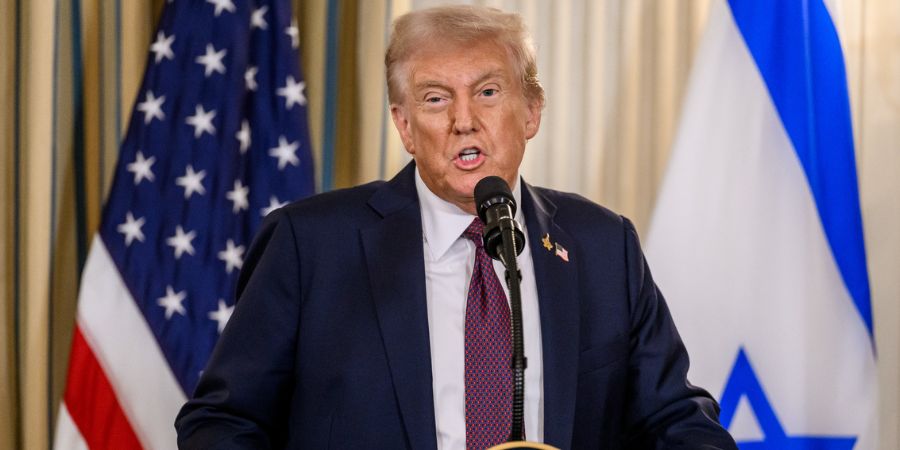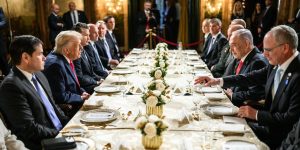When Trump announced that Hamas had “accepted” the U.S. backed ceasefire proposal, global headlines treated it as fact.
But the details were clear: Hamas never said an explicit “yes.”
Its reply included reservations, conditions, and counter-clauses.
Still, Trump’s framing worked.
Within hours, international media, markets, and even regional leaders began reacting to his version – the “yes.”
Governments from Europe to the Gulf adopted that interpretation, turning a single declaration into a global narrative.
This wasn’t a diplomatic misunderstanding – it was strategic framing in motion.
The Moment Trump Defined Reality
On the surface, Hamas’s response was ambiguous: half acceptance, half rejection.
Trump chose not to mirror that ambiguity.
He translated it into a clear affirmative, declaring that Hamas had “accepted the deal” and urging Israel to “act quickly.”
With one sentence, he transformed uncertainty into decision, and shifted the burden of action from Hamas to Israel.
The global question changed instantly: no longer “Will Hamas agree?” but “Will Israel respond?”
Within hours, leaders and outlets worldwide echoed the phrasing “Hamas accepted the proposal” — a textbook display of how dominant framing shapes collective perception.
Trump didn’t just set the tone in Washington — he set the world’s narrative.
That’s the essence of framing power: defining meaning before others do.
Why It Worked: Speed + Simplicity + Certainty + Motion
Speed
Trump reacted immediately. While others analyzed the wording, he already owned the headline.
In negotiation, whoever defines the narrative first – controls it.
Speed isn’t just response time; it’s perception control.
Simplicity
He offered a binary choice: accepted or rejected.
No gray zones.
Simplification reduces hesitation and creates a sense of movement.
When choices appear clear, progress feels inevitable.
Certainty
He spoke as if no ambiguity existed.
It wasn’t the facts, but the tone that shaped perception.
In negotiation, confidence breeds clarity – and the mind of the other side fills in the blanks in your favor.
Motion
His framing didn’t just describe reality – it propelled it forward.
Instead of waiting for clarifications, the world moved based on his version.
Momentum itself became the message.
In business, reframing ambiguity into forward motion keeps deals alive and positions you as the one driving progress.
The Business Lesson: Define the Meaning Before Others Do
Every proposal, rejection, or delay carries built-in ambiguity.
The leader who defines its meaning first – controls how it’s perceived.
When a partner sends a “conditional yes,” most executives pause.
The strategic negotiator says:
“Great, we’re aligned in principle. Let’s finalize the details.”
That small shift transforms hesitation into progress.
It’s not manipulation – it’s strategic leadership.
The Fine Line: When Framing Becomes Overreach
There’s a thin boundary between assertive framing and credibility loss.
When the frame drifts too far from reality, trust collapses.
Trump’s move worked because Hamas’s statement allowed plausible interpretation – not fabrication.
In executive settings, framing is legitimate only when grounded in truth.
Its purpose is to create movement, not distortion.
The Takeaway
Trump’s handling of Hamas’s reply demonstrates a universal truth about leadership and negotiation:
The first version of reality, spoken with confidence, becomes the one the world accepts.
In business, that’s how leaders set the pace: in pricing, partnerships, and recovery after setbacks.
Whoever defines the meaning first dictates perception, momentum, and results.
So the next time you receive an unclear answer, remember this:
Don’t wait for clarity – create it.
Translate ambiguity into motion.
Let uncertainty work for you: turning hesitation into opportunity, progress, and stronger agreements.
Yael Chayu is a global business negotiation expert, keynote speaker, and strategic advisor to executives across industries. She is a doctoral researcher in Behavioral Economics at Reichman University, where she also serves as Academic Director of the Business Negotiation Program at FORE Executive Education. Through www.yaelchayu.com she provides executives with advanced negotiation strategies to accelerate business performance and create lasting impact.





